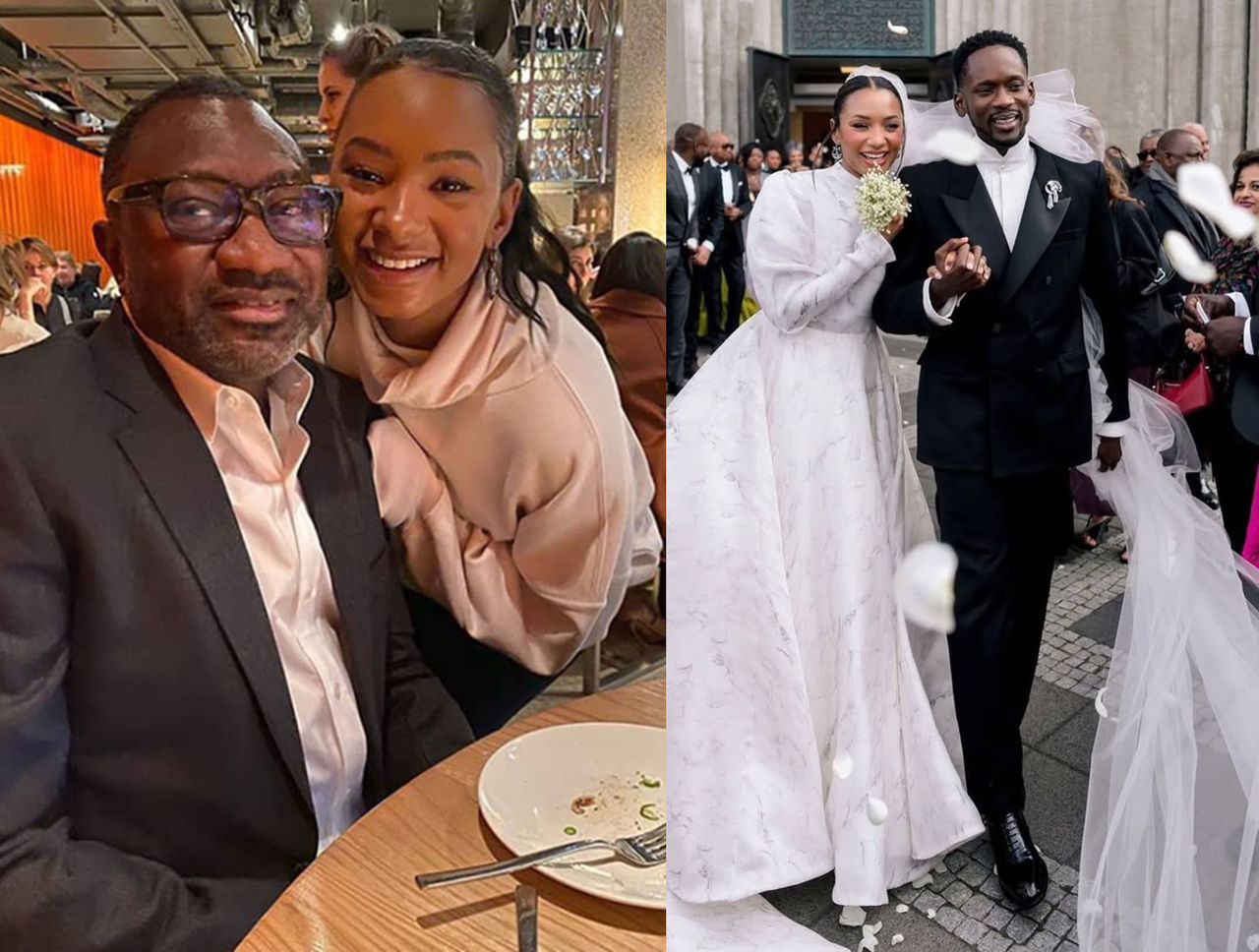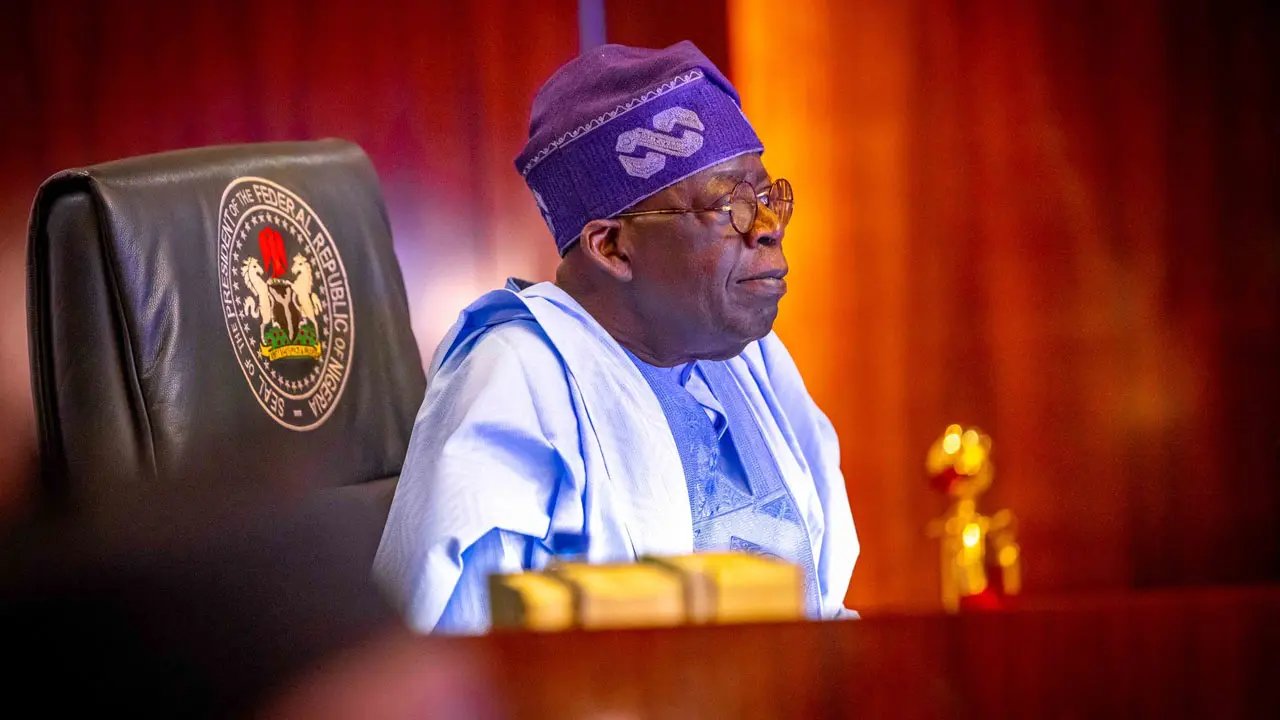
“Succumb to Him, He is Your Husband and Boss” – Femi Otedola’s Advice to Temi Sparks Debate Across Nigeria

In the world of glitz, wealth, and influence, it is not often that family advice makes its way into the public domain in such a raw and unfiltered manner. But billionaire businessman Femi Otedola, known not only for his vast empire in oil and gas but also for being the patriarch of one of Nigeria’s most famous families, has found himself at the center of a heated debate after his words of counsel to his daughter, Temi Otedola, now Temi Ajibade following her wedding to singer Mr Eazi, became public. “You found a great and blessed guy from a decent family. My advice is to succumb to him, he is your husband and boss. When you have issues, keep it within your walls,” Otedola reportedly told Temi. What was meant as a father’s protective guidance has ignited conversations across social media platforms, gender forums, religious circles, and even street corners, with Nigerians sharply divided on whether his advice represents wisdom rooted in tradition or a reinforcement of outdated gender roles that modern women are striving to shed.
Temi, the fashion influencer and actress who tied the knot with Afrobeats star Mr Eazi in a fairytale wedding that spanned exotic locations, is no stranger to the public eye. Her lifestyle, career, and relationship have always been watched closely, but this latest revelation of her father’s marital advice has shifted the spotlight from her fashion and glamor to deeper conversations about gender dynamics, marriage, and cultural expectations. For some, Otedola’s words are a father’s attempt to shield his daughter from the storms that often come with fame and marriage. To them, urging her to “succumb” is not a dismissal of her individuality but a reminder that humility, patience, and respect are key ingredients to sustaining any marriage. His insistence that issues be kept “within your walls” echoes the age-old African value of privacy in marital affairs, an ethos that seeks to protect families from external interference that could inflame minor disagreements into irreparable conflicts.
But in the era of women’s empowerment, feminist awakening, and a global shift towards equality in relationships, the statement “he is your husband and boss” has been met with fierce resistance. Critics argue that in framing the husband as a “boss,” Otedola reduces marriage to a workplace hierarchy where one partner commands and the other obeys. Many young women on social media expressed their disappointment, saying they had expected a progressive figure like Otedola, who has raised daughters with careers and voices of their own, to champion mutual respect and partnership rather than submission and dominance. The backlash has been swift, with hashtags springing up on Twitter and Instagram, as both men and women weigh in. Some women lamented that such advice, coming from one of the most powerful voices in Nigeria, reinforces the notion that no matter how accomplished a woman may be, her ultimate role is still to “succumb” to her husband. They argue that it perpetuates the silence of women in abusive or toxic marriages, encouraging them to endure rather than speak out. Others, however, insist that critics are misinterpreting the heart of the advice.
Supporters of Otedola’s counsel argue that marriage is not a democracy but a delicate balance that requires one partner to lead and the other to follow, with roles often determined by tradition, faith, and culture. To them, Otedola’s words reflect a father’s lived experience of marriage in Nigeria’s deeply rooted patriarchal society, where peace in the home often depends on the woman’s ability to exercise restraint and discretion. They note that Otedola himself has been married for decades, has raised successful children, and perhaps his advice should not be dismissed simply because it clashes with the ideals of modern feminism.
Beyond the social media storms and think-piece articles, the real question is what this advice means for Temi herself. Known for her independent spirit, her career in film, and her bold fashion choices, Temi has never been one to hide in the shadows. Her partnership with Mr Eazi has often been portrayed as a relationship of equals, with both parties supporting each other’s ventures, appearing together at global events, and sharing affectionate glimpses of their life on Instagram. Whether she interprets her father’s words as a command or as guidance remains to be seen, but many are watching closely to see if her marriage becomes a model of tradition or a beacon of modern partnership.
The controversy also raises larger questions about how Nigerian parents should guide their daughters entering marriage in the 21st century. Should advice lean on preserving traditional hierarchies, or should it empower women to demand equality and assertiveness within their unions? Religion further complicates the matter, as many Christian and Muslim teachings emphasize male headship in marriage, with the wife enjoined to submit. Yet global movements for gender equality push back, insisting that love and respect should be mutual and not dictated by gender.
Celebrities, too, have joined the conversation. Some Nollywood actresses defended Otedola, saying that his advice reflects wisdom and that humility never diminishes a woman but strengthens her home. Others, particularly younger voices in the entertainment industry, criticized the statement as outdated, warning that young girls look up to families like the Otedolas and may take such counsel as a directive to tolerate oppression. Feminist groups have even suggested that such advice could indirectly fuel domestic silence, where women avoid reporting abuse because they were taught to “keep issues within the walls.”
In many ways, this incident highlights the generational clash currently unfolding in Nigerian society. The older generation, raised in a time when marriages were bound tightly by tradition and secrecy, often counsel their children to endure, submit, and prioritize family reputation over personal satisfaction. The younger generation, however, is increasingly global in outlook, exposed to ideas of equality, open communication, and even therapy as tools for resolving conflict. Where one sees wisdom, the other sees suppression.
Still, amidst the debate, there are those who urge Nigerians not to miss the heart of the message. For them, Otedola’s words, though clumsily phrased, may have been meant to remind Temi of the virtues of patience, humility, and discretion—qualities that many agree are essential to marital success regardless of gender. The challenge, however, lies in the language used. In today’s climate, words matter deeply, and framing a husband as a “boss” carries heavy connotations that many find troubling.
For Temi, this advice has now become public property, dissected by strangers who have never met her. But perhaps the true test will not be in the opinions of Nigerians but in how she and Mr Eazi live out their marriage. Will they prove that equality and tradition can coexist? Will Temi embody her father’s advice or redefine it in her own way? As the dust settles, what remains clear is that marriage continues to be one of the most contested spaces in Nigerian society, where love, tradition, religion, and modernity all collide. And with families like the Otedolas, every word spoken reverberates far beyond their dining tables into the national consciousness.
What began as a father’s advice to his daughter has become a national debate on the future of marriage in Nigeria, a reflection of the tension between old values and new ideals. Whether Nigerians agree with Otedola or not, one thing is certain: the conversation he sparked will not fade quickly. In the end, the weight of his words will not just shape Temi’s marriage but may also shape how an entire generation of young women and men view the roles they are expected to play in their own unions.


